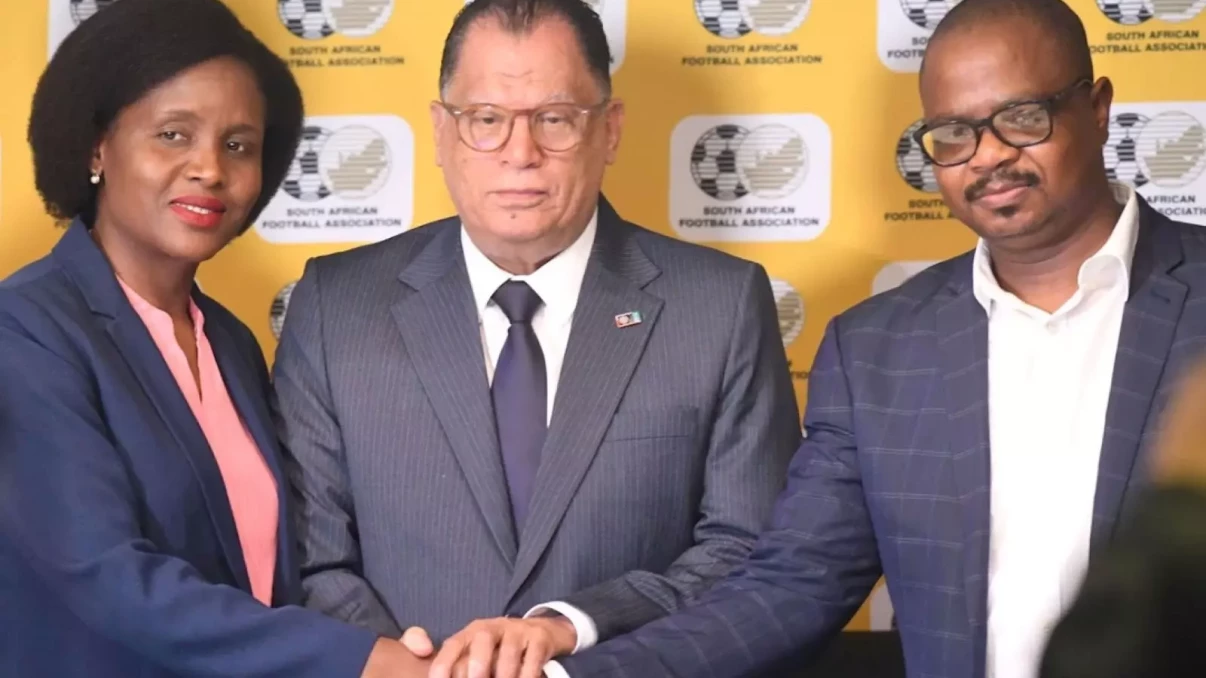SAFA to review national teams bonus structure amidst financial strain
29th June 2025

The escalating costs of national team camps and match bonuses were dominant topics at the SAFA Congress yesterday because the current financial model is unsustainable.
SAFA CEO Lydia Monyepao revealed this fact during a post-Congress press conference at the Sandton Convention Centre yesterday.
In the financial report presented by Chief Financial Officer Grony Hluyo yesterday, which showed a R5 million deficit in 2024, the largest expenditure item was match bonuses to Banyana and Bafana players and technical staff, totalling R150 million. Monyepao says match bonuses are draining their coffers...
"We need to accept where we are financially as a federation, we do not have the sufficient resources we used to have in order to take care of both national teams, because the sponsorship (especially for Bafana Bafana) has reduced," said SAFA's CEO.
Earlier, the Congress had heard that Banyana Banyana players were each paid R1.1 million for their 2023 FIFA Women’s World Cup performances, while Bafana Bafana players received R960,000 each for their third-place finish at last year’s Africa Cup of Nations (AFCON) in Côte D’Ivoire.
Monyepao reveals that a local camp costs them close to R5 million.
"The costs associated with training camps are huge. For a local camp, we are taking R5 million. For an international camp, it is far more, so the costs of having our teams abroad really have taken a toll, but we as a federation are searching for ways to increase our financial resources that flow into SAFA."
With the 52 SAFA regions still being owed grants for over 23 months, dating back to October 2023, the members raised concerns that they are at the receiving end and unable to meet their football development obligations, while all the money goes to national teams’ camps and bonuses.
Monyepao says their biggest challenge is insufficient resources to afford the match bonuses.
"At the moment, we are struggling, but the presentation of our financial team and CFO spoke to the bonuses specifically. We must revisit the bonus structure, because the last thing we want is for our national teams to raise this issue before matches and major tournaments," declared Monyepao.
In the SAFA turnaround strategy presented to the National Executive Committee (NEC) and the Congress, and later adopted, finance committee chairperson Mxolisi Sibam explains the model they are proposing to counter the escalating costs of match bonuses...
"We must try and align SAFA with all the other successful federations of the world. Once we do that, we will be able to see how they solve the issues we face. For all these years, we have met many financial demands, and we have developed football in this country.
"Our current formula to reinvest in the game and compensate teams is not working, and will be reviewed."
However, SAFA Vice-President Linda Zwane was quick to explain that they are not blaming Banyana Banyana for raising their issues over match fees and admitted that, going forward, the lines of communication may need to improve.




16_144x91.webp)


